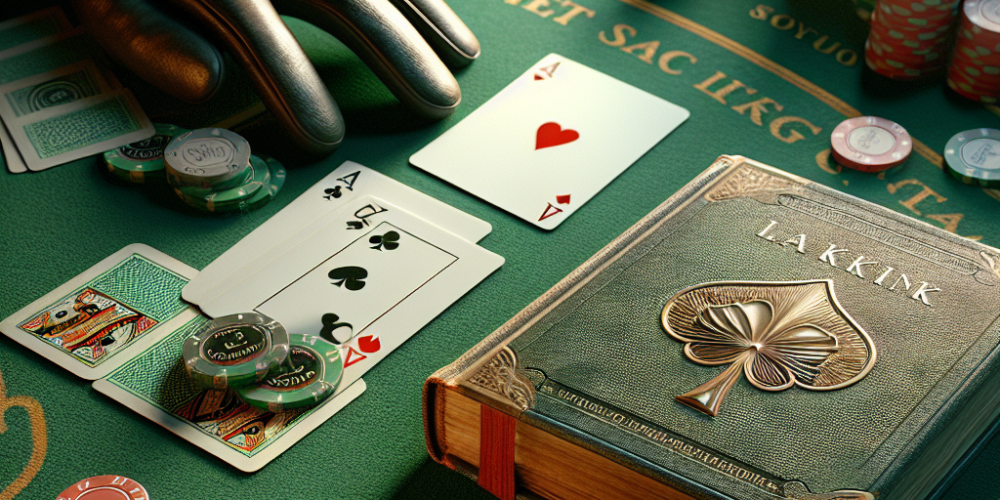Blackjack, often known as 21, is a favorite among casino-goers for its blend of luck and skill. With the right strategies, players can significantly increase their odds of winning. This article delves deep into the essential techniques, bankroll management, and ways to improve your chances of success at the blackjack table.
Understanding Basic Strategy
The backbone of successful blackjack play is the basic strategy. This is a mathematically optimal way to play each hand, based on your cards and the dealer’s visible card. Basic strategy can reduce the house edge to as low as 0.5%, making blackjack one of the most player-friendly games in a casino.
The strategy involves decisions like when to hit, stand, double down, split, or surrender. Charts are available that detail the best moves in every scenario. Memorizing these can seem daunting, but it’s crucial for those who are serious about winning.
Card Counting: An Advanced Technique
Card counting is an advanced blackjack strategy used by some players to turn the odds in their favor. By keeping track of the high and low-value cards dealt, savvy players can predict the likelihood of receiving a beneficial card. This strategy is not illegal but is frowned upon in casinos, and measures like multiple decks and continuous shuffling have been implemented to counteract it.
It’s essential to practice card counting extensively in private before attempting it in a casino to ensure accuracy and speed in your counts.
Bankroll Management
Effective bankroll management is vital in prolonging your gaming session and safeguarding your funds. A good rule of thumb is to only bet a small percentage of your total bankroll on any given session, typically no more than 1-5%. This strategy helps mitigate the risks of rapid losses and allows for a more extended gameplay experience.
Additionally, setting win/loss limits for each session can prevent the common pitfall of chasing losses or squandering winnings.
Choosing the Right Table
Selecting the right blackjack table can be as crucial as the game strategy itself. Tables with favorable rules like 3:2 payouts for blackjack, the dealer standing on soft 17, and allowing doubles after splits can increase your chances of success.
It’s also wise to consider table limits that match your bankroll and comfort level with stakes. Observing a few rounds before joining a table can provide insight into the dealer’s style and the dynamics of the other players, which can influence your strategy.
The Importance of Mindset and Environment
The psychological aspect of gambling cannot be overstated. It is crucial to approach blackjack with a clear mind and a focused attitude. Avoid playing when tired, emotionally distressed, or under the influence of alcohol, as these factors can impair decision-making skills and lead to losses.
Playing in a comfortable environment, whether online or at a physical casino, can also affect performance. Ensure that the setting is conducive to concentration and free from distractions.
Practice Makes Perfect
As with any skill, practice is essential in blackjack. Free online games offer a risk-free way to hone your skills and try out strategies. This method is particularly beneficial for beginners and those practicing card counting.
Conclusion
Blackjack is a game of both chance and skill, but by employing a robust strategy, managing your bankroll wisely, and choosing the right environment, you can dramatically increase your chances of success. Remember, the goal is not only to beat the dealer but to make decisions that give you the best possibility of winning in the long run.
Whether you’re a seasoned player or a newcomer to the blackjack table, continuous learning and adaptation are the keys to success. Implement these tips the next time you play, and you may find yourself enjoying not only enhanced gameplay but also potentially more frequent wins. Remember, responsible gambling is paramount; play wisely and within your limits.

David Harrison stands tall in gambling journalism, marrying his firsthand casino experiences with a deep understanding of betting psychology. His articles transform complex gambling jargon into engaging tales of strategy and chance, making the world of betting accessible and enjoyable. David’s knack for narrative extends beyond print, making him a sought-after speaker on gambling trends and future bets. In the realm of gambling, David is both a scholar and a storyteller, captivating readers and listeners alike.


